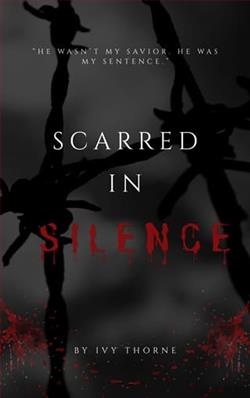Page 25 of On Ice
Happy with my bottle of wine, and my conscience, I head back upstairs.
Chapter Seven
Evan
Alzheimer’s is a vile disease. It’s the cruelest thief. It doesn’t just steal memories—it robs dignity, personality, the very essence of a person.
As I approach the entrance to The Laurel Gardens Memory Care Center, I brace myself for whatever version of Mom I’ll meet today. As the disease progresses, she changes until I don’t recognize her any more than she does me. She used to be a woman who would light up every room she entered. She was funny and articulate. Every year for my birthday, she made the best carrot cake with real cream cheese frosting. Now, some days, she can’t even distinguish pudding from Jello.
I pay an obscene amount of money to keep her at the memory center. But she raised me, cared for me, and now it’s my turn. Dad and Matt can’t begin to afford this place for her, and regular insurance wouldn’t cover even a quarter of the cost. Paying for her care is partly why I live in a crappy apartment, when I could technically afford better. But I’d live in a cardboard box before I’d take her out of this beautiful facility.
I’m happy I can give her the best possible housing situation, but I wish I could save her from what we all know is coming. But I can’t. Even she knows I can’t. The worst part is the fear I see in her eyes when she’s having a rough day. With every stumble and inability to find the memory she’s seeking, the realization she’s losingallthe memories glitters in her eyes. No amount of money can stop the merciless erosion of her mind.
The Laurel Gardens Memory Care Center sits on five manicured acres, its modern architecture softened by flowering dogwoods and carefully tended gardens. I scan my keycard at the secure entrance, nodding to Marcus at the front desk. He’s been here since I moved Mom in two years ago, always remembering residents’ birthdays and their families’ names.
“She’s having a pretty good day, Mr. Riley,” he tells me, typing in my visitor code. “They’re finishing up morning yoga in the sunroom.”
The facility smells like lavender, chamomile, and coffee, not the antiseptic tang I associate with hospitals. Classical music plays softly in the background. A team of nurses in sea blue scrubs moves efficiently between rooms, checking medications and vital signs. Every time I see the staff-to-resident ratio, I know the money I pay is worth it.
I find Mom in the sunroom, hair swept back in a loose French twist that shows off her high cheekbones. She’s still beautiful at sixty-three, trim from the facility’s exercise programs, dressed in a pale blue sweatpants set I don’t recognize. Someone’s applied light makeup, probably Karen, her favorite caregiver. Mom always loved her cosmetics.
“Look who’s here, Catherine,” Karen says, helping Mom from her yoga mat. “Your son Evan came to visit.”
Mom’s green eyes, mirror images of my own, focus on me with polite interest. I can see her searching her brain for memories that are just out of reach. “It’s so nice of you to come see me.”
I smile. “Of course. I love visiting you, Mom.”
“Yes.” Something must click into place because her eyes suddenly warm. “Evan, gosh, it’s good to see you, honey.”
“It’s great to see you, Mom.” I lean in to kiss her cheek, breathing in the familiar scent of Chanel No. 5. She’s worn the same perfume my whole life. That sweet scent conjures up the happiest of times and the worst of times. “Did you enjoy yoga?”
“Kind of. The instructor loves torturing us.” She laughs.
“Well, at least you’re getting results. You look great, Mom.” I know her moment of clarity won’t last, but I’m just happy to have any of these moments.
She smiles. “Are you staying for lunch?”
“If that’s okay.”
“Of course it’s okay.” She pats my arm. “Karen, is it okay if…” She pauses, looking at me with sudden uncertainty.
“Evan,” I supply quietly.
“If Evan stays for lunch?” She looks embarrassed, but almost like she’s not sure why.
“Absolutely.” Karen catches my eye with silent sympathy. “We’re having your favorite today, Catherine. The poached salmon with dill sauce.”
“Oh, lovely.” Mom nods, running a hand over her hair. “I worked up quite an appetite.”
We settle at one of the small tables overlooking the garden. The dining room balances elegance with practicality: fine china weighted to prevent dropping, specialized utensils designed to look like regular silverware, and tables spaced to accommodate wheelchairs while maintaining a restaurant-like atmosphere.
“You look tired, honey.” Mom studies me while placing her napkin on her lap. “Are your teachers giving you too much homework?”
I smile but my face feels stiff. “I’m not in school anymore, Mom. Remember?”
“Oh, that’s right.” She blinks at me. “Are… are they working you too hard at the office? You work in a bank, right? I remember now.”
My body still aches from our brutal morning practice, but I don’t want to embarrass her by correcting her again. She used to cheer at my games and keep elaborate scrapbooks of every news clipping. Now she thinks I work in a bank. But it’s fine. That’s okay. “Work’s good, Mom. Just busy.”















